Have you ever wondered why do dogs have wet noses? This intriguing question has sparked curiosity among pet owners and animal enthusiasts alike. The truth behind those moist noses is not just a quirky characteristic but a fascinating aspect of canine biology. Dogs’ noses are wet for several reasons, including their ability to regulate body temperature and enhance their sense of smell. But what does this mean for their health and behavior? Understanding the science behind a dog’s nose can reveal insights into their emotional state and overall well-being. Do you know that a wet nose can indicate a healthy pup? Or that it plays a vital role in their communication with us and other animals? In this article, we will uncover the fascinating truth about why dogs have wet noses and explore the importance of this unique feature. Get ready to dive deep into the world of dogs, where every sniff and lick tells a story! If you want to learn more about your furry friend’s fascinating physiology, keep reading to discover the secrets behind those wet noses and what they mean for your beloved pet!
The Science Behind Wet Noses: Why Are Dogs’ Noses Moist?
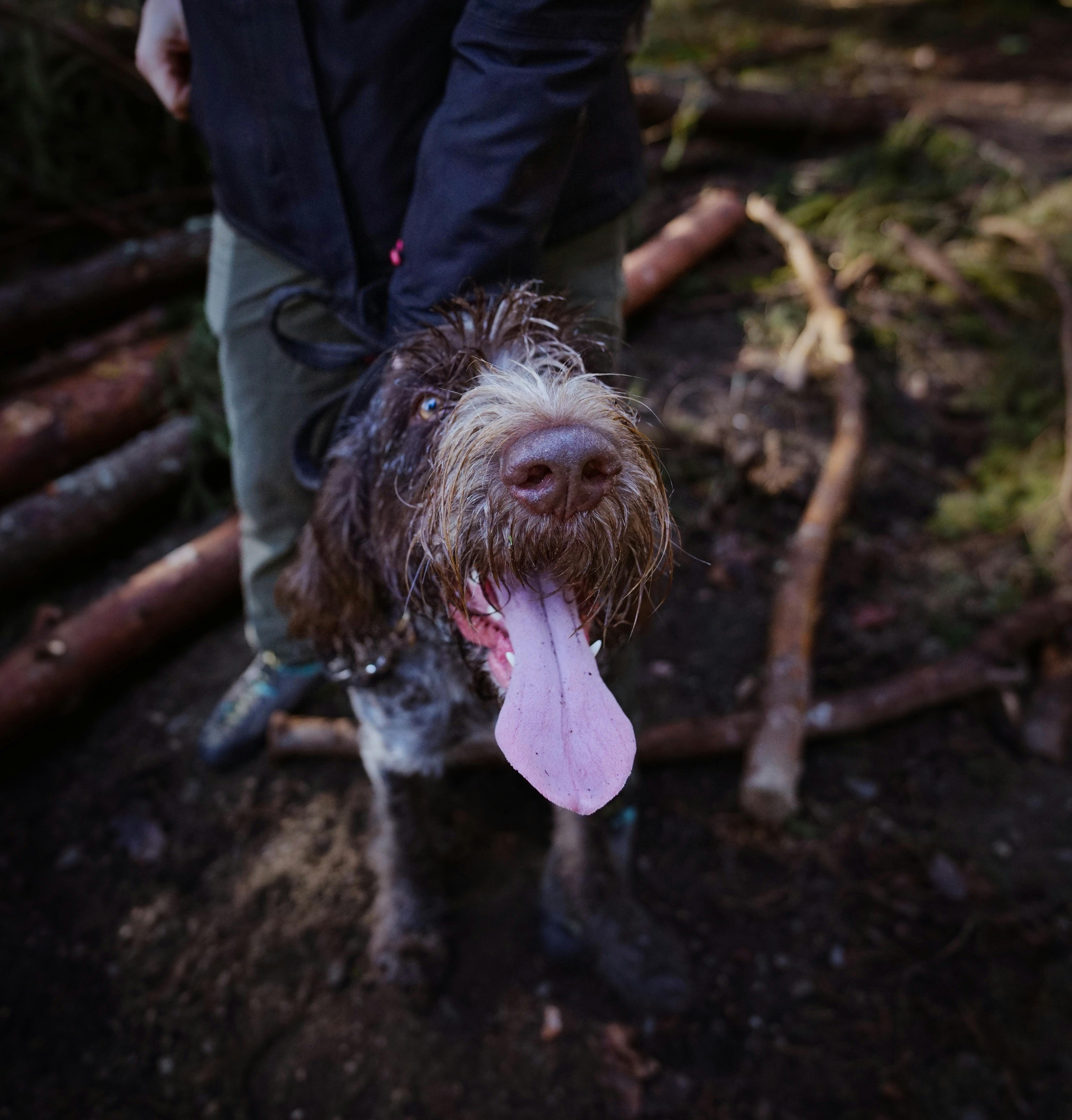
Ever wondered why your furry friend’s nose is always wet? You might be surprise to find out that there’s actually a fascinating science behind those moist noses of dogs. Whether you’ve got a playful puppy or a wise old hound, understanding why dogs have wet noses can enrich your bond with your canine companion. Let’s dive into the world of dog noses and uncover the truth!
The Purpose of a Wet Nose
Dogs’ noses are moist for several reasons. The moisture plays an important role in their sense of smell, which is way more powerful than ours. A wet nose helps to trap scent particles, making it easier for dogs to detect different smells. Here’s a breakdown of why this is so crucial:
- Enhanced Olfactory Function: A moist nose keeps scent receptors active, allowing dogs to pick up on the faintest odors.
- Temperature Regulation: Dogs don’t sweat like humans. They cool off primarily through panting, but a wet nose also helps in maintaining their body temperature.
- Health Indicator: The moisture level of a dog’s nose can indicate their overall health. A consistently dry or excessively wet nose might suggest a health issue.
Why Are Dogs’ Noses Moist?
So, why exactly do dogs have wet noses? It’s a combination of biology and evolution. Canines are descendants of wolves, and their noses have adapted over time to help with survival. Here’s how:
- Evolutionary Adaptation: In the wild, wolves rely on their keen sense of smell to hunt and find food. A moist nose helps them locate prey more effectively.
- Nasal Glands: Dogs have specialized glands in their noses that secrete a thin layer of mucus. This mucus not only helps in capturing scents but also keeps the nose cool and hydrated.
- Licking Behavior: Dogs often lick their noses, which keeps them moist. This behavior is instinctual and serves multiple purposes, including cleaning their noses and enhancing their sense of smell.
Fascinating Facts About Dog Noses
- Unique Patterns: Just like human fingerprints, every dog has a unique nose print. This means that you could theoretically identify a dog by its nose alone!
- Scent Detection: Dogs can detect certain scents at incredibly low concentrations, up to 100 million times less than humans can.
- Temperature Sensitivity: The moisture from a dog’s nose can help them sense temperature changes in their environment. This is crucial for tracking down prey or sensing danger.
Comparison: Dogs vs. Humans
Let’s look at how dogs’ noses compare to human noses:
| Feature | Dogs | Humans |
|---|---|---|
| Moisture | Often moist | Usually dry |
| Olfactory Receptors | ~300 million | ~5 million |
| Sense of Smell | 10,000 to 100,000 times better | Limited |
| Nose Prints | Unique to each dog | Not unique |
Common Myths About Dog Noses
There are plenty of myths floating around about why dogs have wet noses. Here are a few to debunk:
Myth 1: A warm dry nose means a dog is sick.
- Fact: Nose temperature isn’t a reliable health indicator. Dogs can have a dry nose and still be healthy.
Myth 2: Dogs only have wet noses when they’re happy.
- Fact: Dogs can have wet noses due to environmental factors or after licking it, regardless of their mood.
Myth 3: All dogs have wet noses.
- Fact: Some breeds, especially those with flat faces, may have drier noses due to their anatomy.
Practical Tips for Dog Owners
If you’re a dog owner, here’s how you can care for your dog’s nose:
- Hydration: Ensure your dog drinks enough water, as hydration helps maintain a moist nose.
- Check for Changes: Keep an eye on your dog’s nose. If it becomes excessively dry or cracked, consult your vet.
- Avoid Irritants: Be cautious with cleaning products or chemicals that could irritate your dog’s nose.
Understanding why do dogs have wet noses can deepen your appreciation for these loyal companions. Their noses are not just cute; they serve essential functions that contribute to their well-being and survival. So next time you see your dog with that moist, cold nose, you’ll know there’s more to it than meets the eye!
5 Fascinating Reasons Your Dog’s Nose Is Always Wet: Discover the Truth!
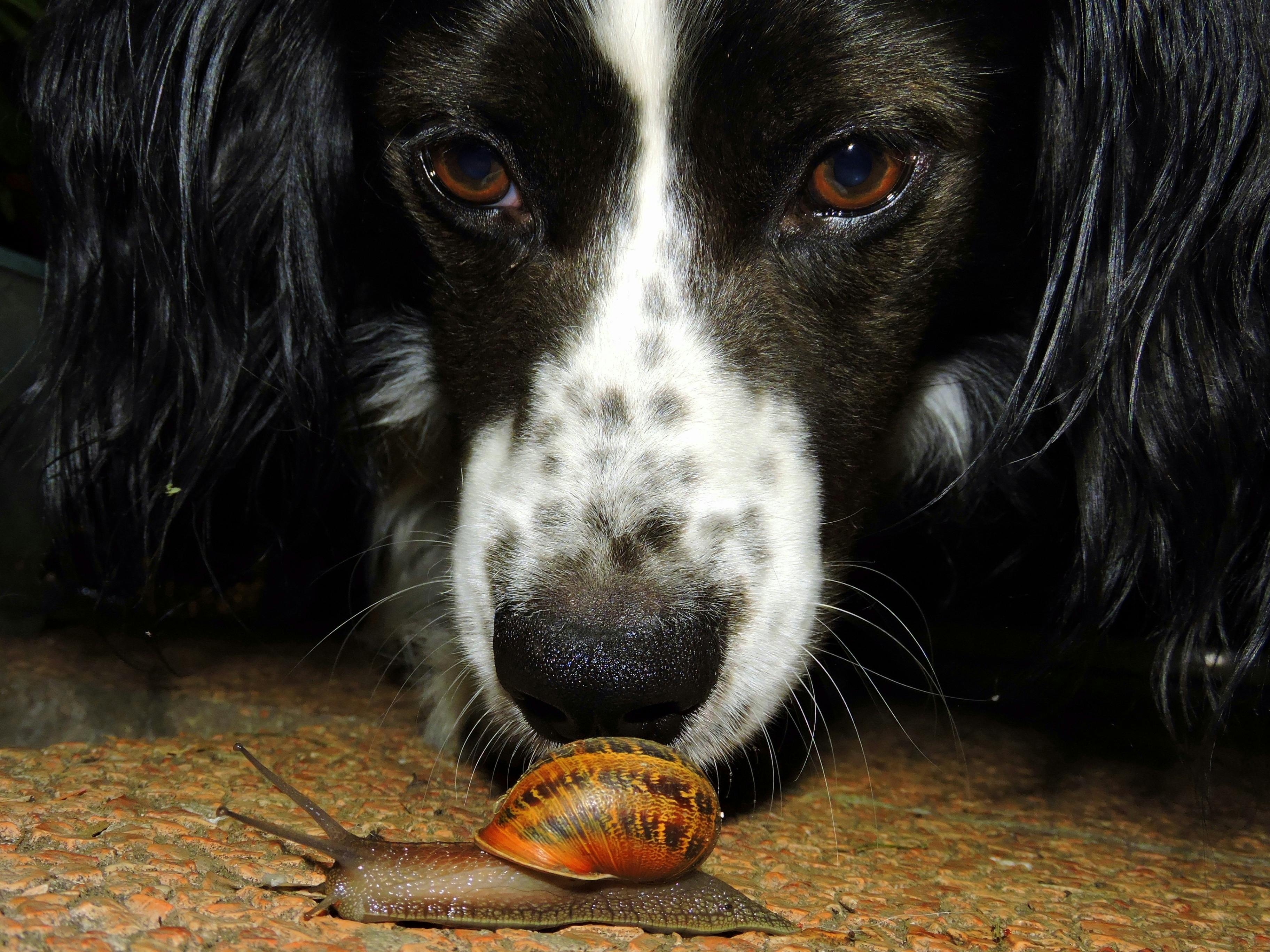
Have you ever wondered why your furry friend’s nose is always so wet? It’s a common thought among dog owners and lovers alike. Many people just assume it’s normal, but there’s actually a lot more going on than meets the eye. Here we explore 5 fascinating reasons your dog’s nose is always wet. Get ready to uncover the truth about those moist, adorable snouts!
1. Natural Cooling System
Dogs don’t sweat like humans do. Instead, they use their noses to help regulate their body temperatures. The wetness on a dog’s nose helps cool them down. When they breathe, moisture evaporates off their noses, helping to release excess heat. This is especially useful during hot summer days when they may be more active.
- Dogs pant to release heat, but their noses assist in this too.
- A wet nose can indicate a dog is feeling comfortable.
- Dryness might suggest they’re overheating or stressed.
2. Enhanced Sense of Smell
Did you know that a dog’s sense of smell is 10,000 to 100,000 times more powerful than that of humans? Crazy, right? The wetness of a dog’s nose helps trap scent particles from the air, enhancing their ability to smell. When moisture is present, it’s easier for odors to stick, which means your dog can pick up on smells much better.
- Dogs have about 300 million scent receptors in their noses.
- The wetness allows them to analyze scents more effectively.
- A dog’s nose can detect certain diseases in humans!
3. Communication Tool
Dogs are social animals and their noses play a vital role in how they communicate with each other. A wet nose can signal various emotions and intentions. For example, a friendly, wet nose poking at you might just mean your dog is excited to see you!
- Wet noses can indicate a dog is relaxed and happy.
- Dogs often greet each other with nose nudges to learn more about one another.
- A dog with a dry nose may be feeling unwell or anxious.
4. Hydration Indicator
A wet nose can also be a good sign that your dog is properly hydrated. Dehydration can lead to serious health issues, and one way to monitor your dog’s hydration is through their nose. If their nose becomes dry and cracked, it could be a warning.
- Check your dog’s nose regularly for signs of dryness.
- A well-hydrated dog usually has a cold, wet nose.
- Other signs of dehydration include dry gums and lethargy.
5. Health Status Check
A dog’s nose can be an indicator of their overall health. A sudden change in the moisture level of their nose can be a sign of illness. If your dog’s nose is excessively dry or unusually wet, it might be time to consult a vet.
- A wet nose is typically a healthy sign, but not always.
- Look for other signs of illness like coughing or lack of energy.
- If in doubt, better to check with a professional.
Fascinating Facts About Dog Noses
- The texture of a dog’s nose is unique to each individual, much like a human fingerprint.
- Dogs can even smell emotions; they can sense fear, happiness, and anxiety.
- Some breeds, like Bloodhounds, have an extraordinary ability to track scents over long distances.
Quick Tips to Keep Your Dog’s Nose Healthy
- Keep your dog hydrated; fresh water is essential.
- Monitor for any changes in the texture or moisture of their nose.
- Ensure regular vet check-ups to catch any health issues early.
- Avoid exposing your dog to extreme temperatures for prolonged periods.
So, why do dogs have wet noses? It’s not just for cuteness; it serves multiple essential functions. From cooling down to enhancing their sense of smell, a wet nose plays a significant role in your dog’s health and wellbeing. Next time you give your pup a scratch behind the ears, take a moment to appreciate that adorable, wet nose! It’s more than just a cute feature; it’s a window into your furry friend’s health and emotions.
Is Your Dog’s Wet Nose a Sign of Health? Unraveling the Myths and Facts

Dogs are some of the most beloved pets around the world, and one of the most endearing features they have is their wet nose. Many people might wonder, is your dog’s wet nose a sign of health? Or maybe they just think it’s cute. In this article, we gonna unravel the myths and facts behind this fascinating topic and discover why do dogs have wet noses in the first place.
Why Do Dogs Have Wet Noses?
Dogs have wet noses due to a variety of reasons. The main one being that it helps them to sense the world around them better. A wet nose can enhance a dog’s sense of smell, which is significantly more developed than humans. Here’s a quick rundown of some reasons:
- Enhanced Olfactory Function: The moisture on a dog’s nose helps to trap scent particles. This improves their ability to detect different smells, making them excellent hunters and companions.
- Temperature Regulation: Just like humans sweat, dogs rely on their noses to regulate body temperature. The moisture on the nose evaporates, helping cool them down.
- Health Indicator: A wet nose is often associated with a healthy dog, although it’s not a definitive sign. Changes in the nose’s moisture can indicate potential health issues.
The Myths and Facts About Wet Noses
There’s a lot of myths floating around about what a dog’s wet nose signifies. Let’s break down some common myths and compare them to the facts.
| Myth | Fact |
|---|---|
| A wet nose means my dog is sick | Dogs can have wet noses when they are healthy, too. |
| Dry nose equals a fever | Not always! A dry nose doesn’t necessarily indicate illness. |
| Only certain breeds have wet noses | All dogs can have wet noses regardless of breed. |
Historical Context of Dogs’ Noses
It’s interesting to note that the evolution of dogs has played a role in the development of their noses. Historically, dogs were bred for specific purposes, like hunting and herding, where their sense of smell was crucial. Their wet noses are a result of natural selection, favoring those that could better detect scents in their environments. This evolutionary trait remains relevant today, even for pet dogs that may not have the same working roles.
What Does a Dog’s Nose Tell You?
Understanding your dog’s nose can give you insights into their health and well-being. Here’s what to look for:
- Moisture Level: A moist nose is commonly seen in healthy dogs. If your dog’s nose suddenly becomes dry or cracked, it might be worth a trip to the vet.
- Temperature: A warm, dry nose can sometimes be a sign of fever, but not always. It’s best to check other symptoms, like lethargy or loss of appetite.
- Color Changes: If you notice discoloration on your dog’s nose, it may indicate allergies or other health issues.
How to Keep Your Dog’s Nose Healthy
Maintaining your dog’s nose is a part of their overall health. Here are some tips:
- Hydration: Ensure your dog drinks enough water daily. Proper hydration helps keep their nose moist.
- Avoid Allergens: If your dog has skin issues or allergies, it can affect their nose. Keep them away from known allergens.
- Regular Vet Check-ups: Regular visits to the vet can help identify any underlying health concerns.
Practical Example of Monitoring Your Dog’s Nose
Take a week to keep track of your dog’s nose condition. Here’s how you can do it:
- Day 1: Note if the nose is wet or dry and the temperature.
- Day 2: Observe any changes in moisture or color.
- Day 3: Check for any changes in your dog’s behavior or appetite.
- Continue this for a week: If you notice consistent dryness or other symptoms, consult your veterinarian.
By monitoring your dog’s nose, you can be proactive in identifying any potential health issues.
When it comes to our furry friends, the condition of their noses can tell us quite a bit. While a wet nose often suggests a healthy dog, it’s crucial not to rely solely on this factor for health assessments. Instead, maintain a holistic approach to your dog’s health, taking into account diet, activity level, and regular veterinary care. Understanding why do dogs have wet noses provides not just insight into their health but also a deeper appreciation for these wonderful creatures.
Do All Dogs Have Wet Noses? Exploring Variations Across Breeds
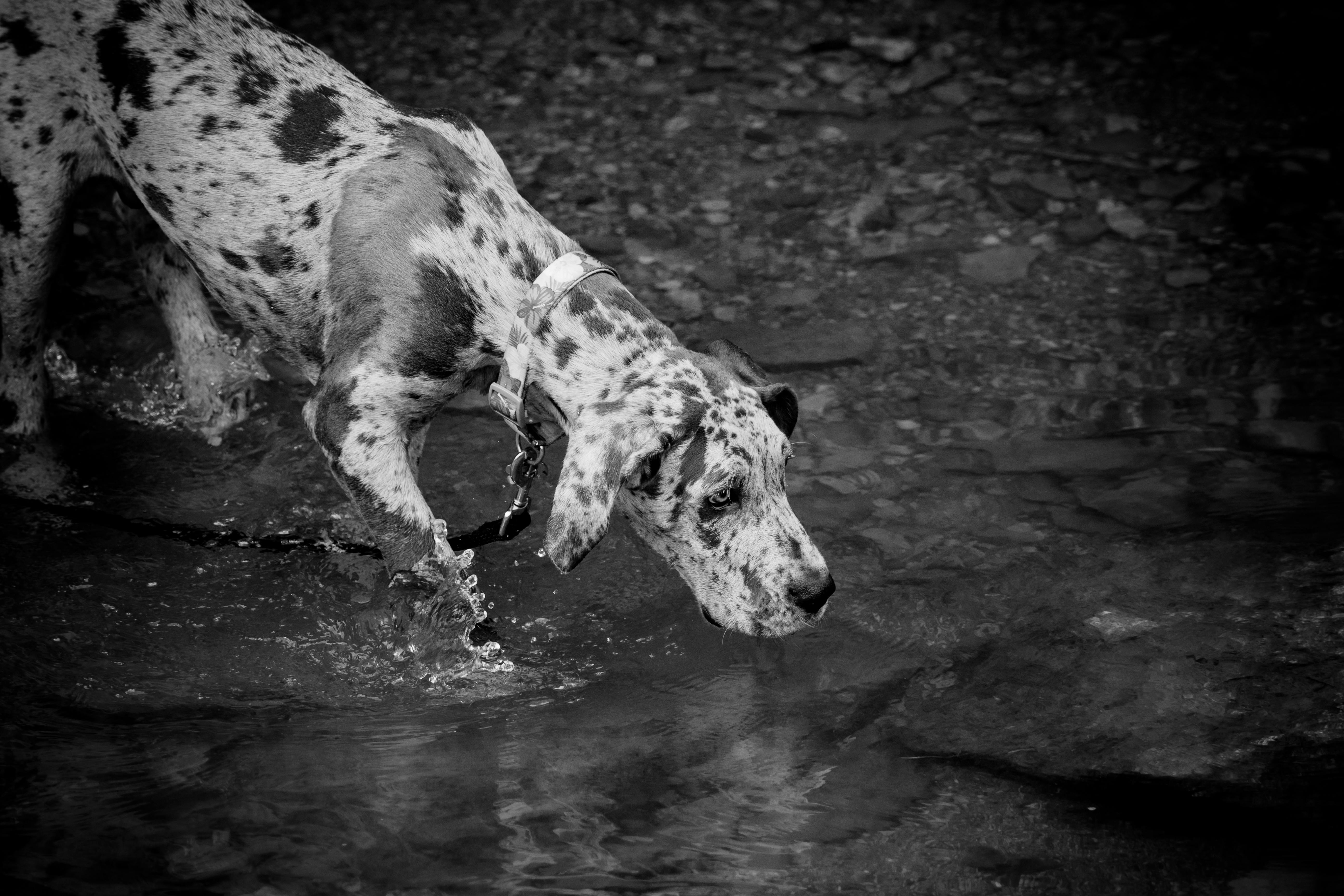
Do all dogs have wet noses? This simple question prompts a deep dive into the fascinating world of canine biology. Many people, especially dog owners, might have noticed that most dogs tend to have moist noses. But is it true for every breed? And why do dogs have wet noses in the first place? Let’s explore these questions together.
The Science Behind Wet Noses
First off, a wet nose serves several important functions for dogs. It’s not just about keeping things cool or looking cute! Here’s a breakdown of why a dog’s nose might be wet:
- Temperature Regulation: Dogs, unlike humans, don’t sweat through their skin. They primarily rely on their noses and panting to cool down. A wet nose helps them regulate temperature effectively.
- Enhanced Smell: The moisture on a dog’s nose helps to capture scent particles from the air. This enhances their ability to smell, which is essential for hunting, tracking, and even just navigating their environment.
- Health Indicators: A healthy dog usually has a moist and cool nose. Conversely, a dry or excessively warm nose can sometimes indicate illness or dehydration, although this isn’t a definitive measure.
Do All Breeds Have Wet Noses?
Not all dogs have wet noses! Some breeds may have drier noses than others due to various factors including genetics and environmental conditions. For instance, breeds like the Bulldog or the Shar Pei might have less moisture compared to a Beagle or a Labrador Retriever.
Let’s look at some breed-specific variations:
Breeds with Typically Wet Noses:
- Labrador Retrievers
- German Shepherds
- Golden Retrievers
Breeds with Drier Noses:
- Bulldogs
- Shar Peis
- Pugs
The differences between these breeds can be influenced by their unique genetic makeup and their environment.
Why Do Dogs Have Wet Noses? Uncovering the Fascinating Truth!
Now that we know some breeds have drier noses, why is that? There’s a combination of factors at play. For one, the physical structure of their snouts and the amount of body fat can impact how much moisture their noses hold. Also, environmental factors like humidity and temperature can cause a dog’s nose to dry out or stay moist.
- Humidity: In dry climates, dogs might have drier noses. On the contrary, humid environments can keep their noses wet.
- Health Conditions: Certain conditions like allergies, infections, or autoimmune disorders can lead to dryness. If a dog’s nose is persistently dry, it might be worth consulting a veterinarian.
Fun Facts About Dog Noses
- Unique Patterns: Just like human fingerprints, every dog has a unique nose print. This can actually be used for identification!
- Scent Superiority: A dog’s sense of smell is estimated to be between 10,000 and 100,000 times more sensitive than a human’s. That’s why their wet noses are so important!
- Nose Color Changes: A dog’s nose color can change with the seasons or even with age. Some dogs may have a black nose in summer and a lighter one in winter.
Practical Tips for Dog Owners
Here are some things dog owners can do to ensure their furry friends have healthy noses:
- Regular Check-ups: Regular vet visits can help catch any potential health issues early.
- Hydration: Make sure your dog drinks enough water, especially in hot weather.
- Moisture Maintenance: If your dog’s nose looks dry, consider using a pet-safe nose balm to keep it moisturized.
Having a wet nose is just one of the many charming traits that dogs bring to our lives. While not every dog will have a perpetually moist nose, understanding the reasons why dogs have wet noses can enhance our relationship with them. So next time you pet your pup, take a moment to appreciate that wet nose and all the fascinating biology behind it!
How a Wet Nose Helps Dogs Detect Scents: The Surprising Connection
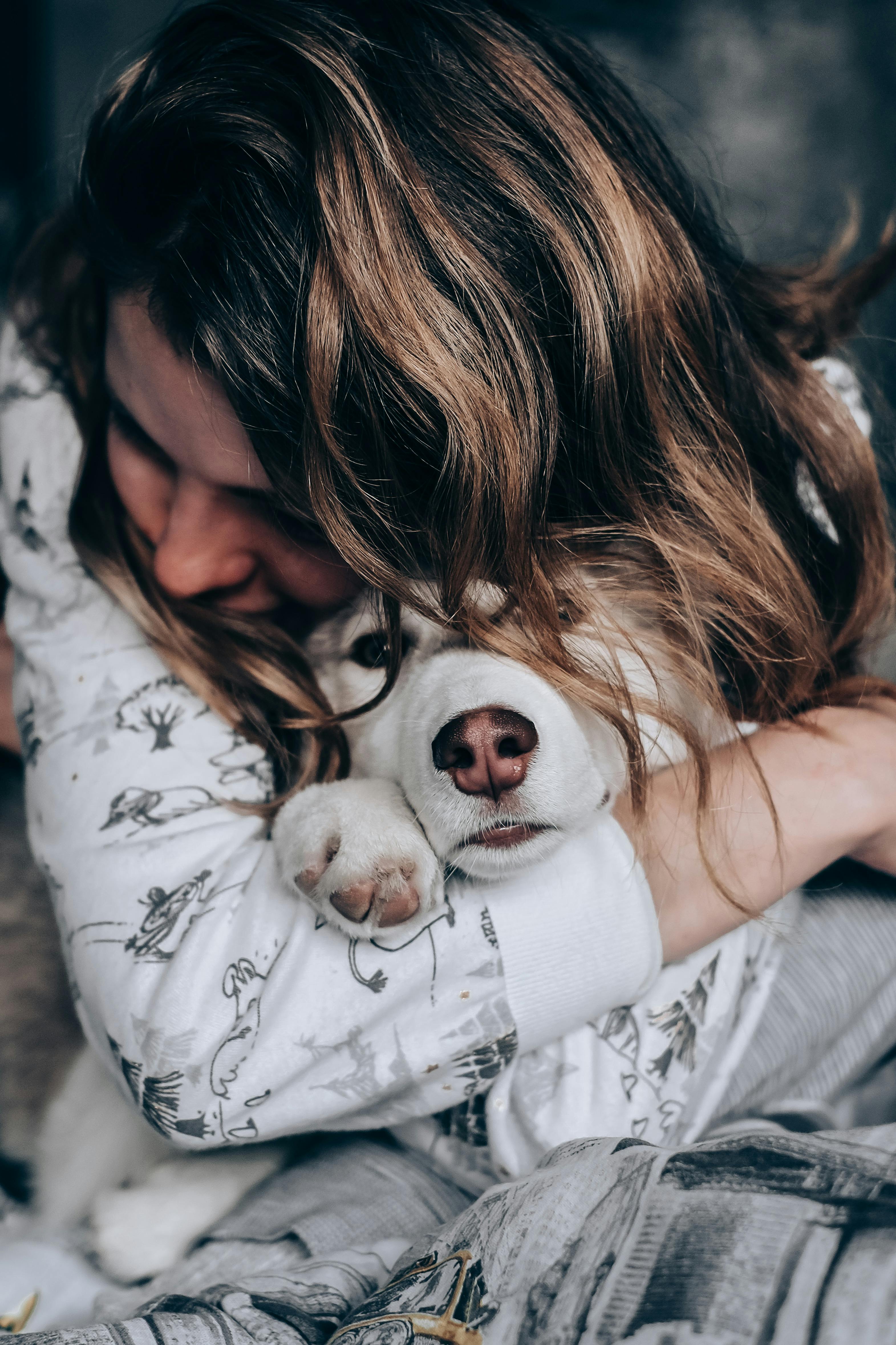
Dogs are often called man’s best friend, and one of the many reason why is their incredible ability to detect scents. But have you ever wondered why do dogs have wet noses? The answer might be more intriguing than you think. A wet nose is not just a cute feature; it plays a crucial role in how dogs interact with the world around them.
The Science Behind Wet Noses
Dogs have a special anatomy that allows them to have wet noses. Dogs noses are covered with a thin layer of mucus, which helps to dissolve scent molecules. This makes it easier for their olfactory receptors to pick up the smells. In fact, a dog’s sense of smell is estimated to be 10,000 to 100,000 times more sensitive than that of humans!
Here’s some fascinating facts about dogs noses:
- They have up to 300 million olfactory receptors, compared to about 5 million in humans.
- Dogs can detect certain diseases, including cancer and diabetes, through scent.
- Wetness on the nose can help them cool off, as dogs don’t sweat like humans do.
Why Do Dogs Have Wet Noses?
Now, let’s explore why do dogs have wet noses in more detail. A wet nose helps dogs in several important ways which includes:
- Enhanced Smell: As mentioned, the moisture in a dog’s nose allows scent particles to stick better, improving their ability to detect smells.
- Temperature Regulation: Wet noses can help dogs regulate their body temperature. When a dog pants, moisture evaporates from their nose, providing a cooling effect.
- Communication: Dogs use their noses to communicate with each other. A wet nose can also be a sign of a healthy dog, and it often signals excitement or curiosity.
Historical Context of Dogs and Their Noses
The relationship between humans and dogs dates back thousands of years. Early humans would have relied on dogs for hunting and protection, and their keen sense of smell was essential. As dogs evolved alongside humans, they developed traits that made them more efficient hunters and companions.
In ancient times, certain breeds were specially selected for their sniffing abilities. For example, Bloodhounds are famous for their tracking skills, thanks to their large noses filled with olfactory receptors.
The Role of a Wet Nose in Dog Health
A wet nose is often seen as a sign of a healthy dog, but that’s not always the case. Here are some points to consider:
- Healthy Indicators: A moist and cool nose usually indicates good health.
- Signs of Illness: If a dog’s nose becomes dry and warm, it could be a sign of illness.
- Regular Checkups: Regular vet visits can help ensure your dog’s nose and overall health is in good shape.
Fun Facts About Dog Noses
- Dogs can smell fear! They can detect changes in body chemistry that occur when someone is scared.
- Some breeds, like the Beagle, are known for their extraordinary sense of smell and are often used in search and rescue missions.
- Dogs can remember scents for years!
How Dogs Use Their Noses in Everyday Life
Dogs use their noses for more than just detecting scents. Here are some practical examples of how they engage their sense of smell in daily activities:
- Finding Food: Dogs can track down food smells from miles away.
- Navigating Their Environment: They can recognize familiar scents in their surroundings.
- Detecting Emotions: Dogs often respond to the emotions of the people around them, thanks to their keen sense of smell.
Comparison of Dog Nose to Human Nose
| Feature | Dog Nose | Human Nose |
|---|---|---|
| Olfactory Receptors | 300 million | 5 million |
| Sensitivity to Smell | 10,000 to 100,000 times stronger | Much less sensitive |
| Nose Moisture | Usually wet | Usually dry |
| Ability to Detect | Diseases, drugs, and scents | Limited to everyday smells |
Understanding why do dogs have wet noses offers insight into their behavior and health. It’s not just a quirky characteristic but a vital part of their biology that enhances their ability to connect with the world.
Whether you’re a dog owner or simply a dog lover, knowing the fascinating truth behind wet noses can deepen your appreciation for these amazing creatures. Embrace the uniqueness of dogs and their incredible sniffing abilities!
The Role of Moisture in Dog Nose Health: Tips for Pet Owners
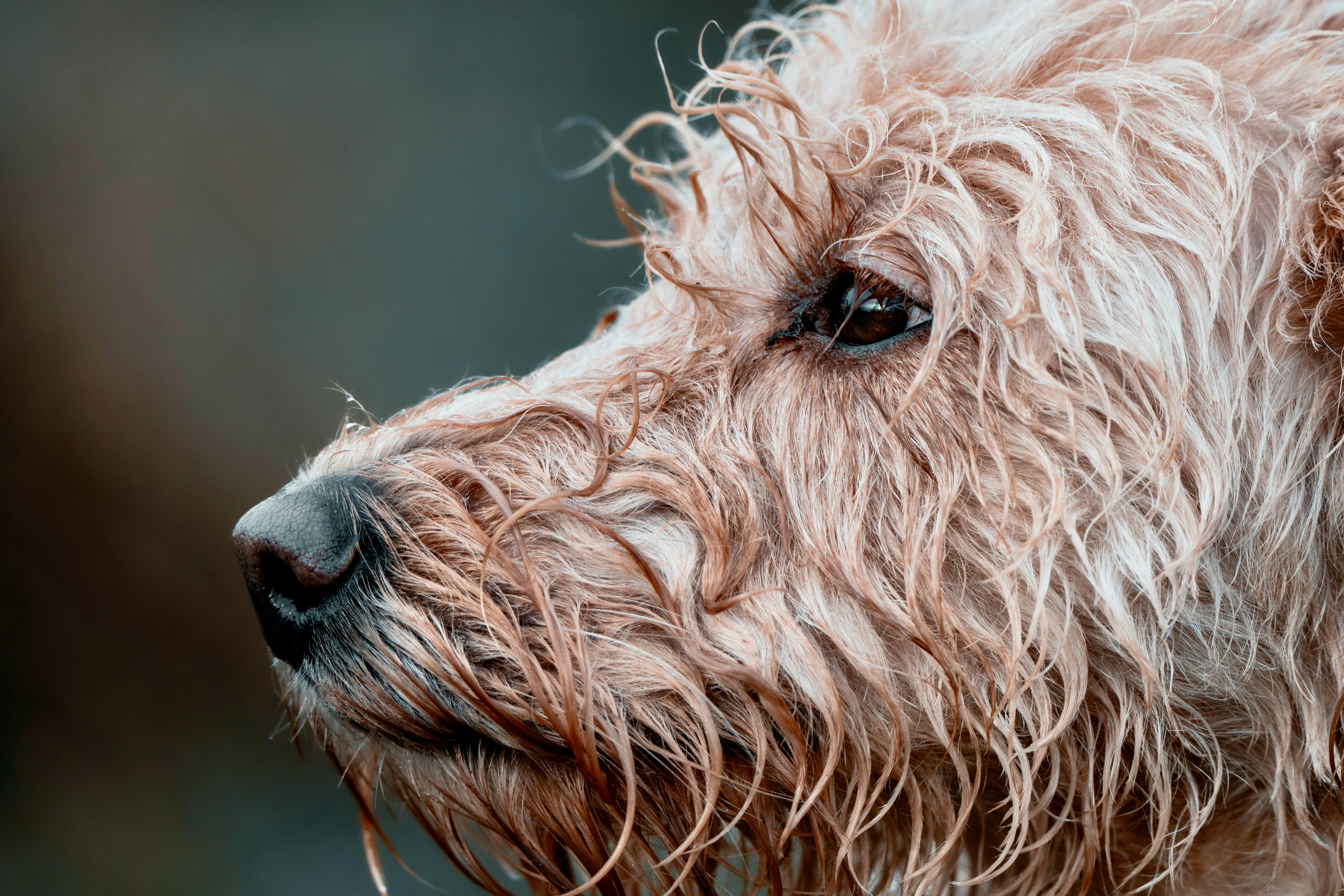
When you see a dog, one of the first things that catch your eye is their wet nose. But why do dogs have wet noses? It’s more than just a cute feature; there’s a fascinating truth behind it that every pet owner should know. The moisture in a dog’s nose plays a significant role in their overall health, assisting in their ability to smell and even regulate their body temperature. Let’s explore the importance of moisture in dog nose health and provide some valuable tips for pet owners.
The Science Behind Wet Noses
Dogs have wet noses for a couple of reasons. The primary purpose is to enhance their sense of smell. A dog’s sense of smell is incredibly powerful, and moisture can help to trap scent particles in the air. When a dog inhales, the moisture on their nose helps to absorb these scents, making it easier for them to detect and identify different odors. It’s like having a supercharged nose!
Moreover, the moisture also helps to keep their body cool. Dogs don’t sweat like humans do; instead, they rely on panting and their noses to regulate their body temperature. A wet nose can help dissipate heat, keeping them more comfortable in warmer weather.
Why Moisture is Important for Dog Health
Maintaining moisture in your dog’s nose is crucial for various reasons:
- Enhanced Smell: As mentioned, moisture helps in trapping scent particles, improving their olfactory senses.
- Temperature Regulation: Wet noses aid in cooling down the body.
- Protection Against Infections: A healthy nose can prevent dirt and bacteria from entering the nasal passages.
However, it’s important to note that not all wet noses are healthy. A dry or cracked nose can indicate underlying health issues. If your dog’s nose becomes excessively dry or starts to crack, it may be time to consult a veterinarian.
Factors Affecting Nose Moisture
Several factors can affect the moisture level of a dog’s nose:
- Weather Conditions: Hot and dry weather can lead to a drier nose.
- Dehydration: If a dog isn’t drinking enough water, it may reflect in their nose.
- Health Issues: Certain illnesses can cause changes in nose moisture.
Tips for Pet Owners to Maintain Healthy Nose Moisture
There are a few simple ways you can help keep your dog’s nose healthy and moist:
Hydration is Key: Ensure your dog has constant access to fresh water. Hydration affects not just the nose, but overall health.
Avoid Overheating: In hot weather, provide shade and limit exercise during peak heat times. You can also use cooling mats or vests.
Regular Vet Visits: Regular check-ups can help catch any health issues early on. A vet can assess the condition of your dog’s nose and overall health.
Humidifiers: If you live in a particularly dry climate, using a humidifier can help maintain moisture in the air, benefiting your dog’s nose.
Nose Balm: There are special balms available for dogs that can help maintain moisture levels in their noses.
Common Myths About Dog Noses
There are plenty of myths surrounding dog noses that might confuse pet owners. Here’s a brief rundown:
Myth: A warm dry nose means a dog is sick.
- Truth: A dog’s nose temperature can vary. It’s not a reliable indicator of health.
Myth: Dogs only have wet noses when they’re healthy.
- Truth: While a wet nose is often a sign of good health, it’s not definitive.
Myth: All dog noses are the same.
- Truth: Different breeds have different nose shapes and moisture levels.
Quick Reference: Dog Nose Health Checklist
- Check for Cracks or Dryness: Regularly inspect your dog’s nose for any abnormalities.
- Monitor Hydration: Always ensure your dog drinks enough water.
- Observe Behavior: If your dog is lethargic or shows signs of discomfort, consult a vet.
In conclusion, the role of moisture in dog nose health is essential not just for their sense of smell but for their overall well-being. Understanding why dogs have wet noses and the implications of moisture can help pet owners provide better care. So, the next time you give your pup a scratch behind the ears, take a moment to appreciate that adorable, moist nose and everything it signifies about your furry friend’s health.
Wet Nose Wonders: What Your Dog’s Nose Says About Their Emotions

Have you ever noticed how your dog’s nose is often wet? It’s a common sight, but have you ever wonder what that actually means? Wet noses are not just a cute feature; they play a crucial role in how dogs experience the world around them. In this article, we dive into the fascinating world of canine noses, exploring why do dogs have wet noses and what they can reveal about their emotions.
The Science Behind Wet Noses
Dogs noses are naturally moist, and there’s a reason for this. The moisture helps enhance their sense of smell, which is already far superior to ours. A wet nose can absorb scent molecules from the air, making it easier for dogs to detect various smells.
Here’s a breakdown of the science:
- Olfactory Receptors: Dogs have around 300 million olfactory receptors in their noses compared to about 5 million in humans. This means they can smell things we can’t even imagine!
- Temperature Regulation: Dogs also use their noses to help cool off. The moisture evaporating from their noses helps regulate their body temperature.
- Health Indicator: A wet nose is often a sign of good health. But a dry or cracked nose could indicate that something’s wrong, like dehydration or illness.
Why Do Dogs Have Wet Noses?
There are several reasons why dogs noses get wet. One is that they lick their noses frequently. This not only keeps them moist but also helps them gather more scent particles. Dogs are naturally curious creatures, and they use their noses to explore the world.
Another reason is that the nasal glands produce mucus, which keeps the nose moist. This moisture is essential for maximizing their sense of smell. It’s like having a superpower for detecting scents!
What Your Dog’s Nose Says About Their Emotions
Did you know that a dog’s nose can also tell you about their emotional state? Dogs express their feelings in various ways, and their noses are no exception. Here’s what you might observe:
- Wet and Cold: A dog with a wet and cold nose is usually relaxed and healthy.
- Warm and Dry: If your dog’s nose is warm and dry, they might be feeling anxious or stressed.
- Excessively Wet: Sometimes, a very wet nose can indicate excitement or even a bit of anxiety.
Practical Examples to Observe
To better understand your dog’s emotions, here are some practical examples you can look for:
- Greeting Behavior: When your dog greets you with a wet nose, they are typically happy to see you.
- Playtime: During play, a wet nose can indicate excitement and eagerness to engage in activity.
- When They’re Sick: If your dog’s nose is excessively dry and they are lethargic, it might be time to consult a vet.
Historical Context of Dog Noses
Dogs have been domesticated for thousands of years, and their noses have evolved right along with them. Historically, dogs were bred for specific tasks, including hunting, herding, and guarding. Their noses have adapted to help them excel in these roles. For example, bloodhounds are known for their incredible sniffing ability, which is a direct result of selective breeding.
Fun Facts About Dog Noses
- Unique Patterns: Just like human fingerprints, every dog has a unique nose print.
- Temperature Sensitivity: Dogs can sense temperature changes through their noses.
- Scent Memory: Dogs can remember scents for a long time, which is why they can recognize familiar smells even after a long time.
Comparison of Dog Noses to Other Animals
Dogs aren’t the only animals with wet noses. Here’s how they compare with other common pets:
| Animal | Nose Type | Moisture Level | Smell Sensitivity |
|---|---|---|---|
| Dog | Wet and cold | High | Extremely high |
| Cat | Mostly dry | Low | Moderate |
| Rabbit | Wet and warm | Moderate | Low |
Dogs have a remarkable sense of smell that sets them apart from many other pets. This incredible ability is tied directly to the moisture of their noses.
In summary, the wetness of a dog’s nose is not just a quirky trait but a fascinating aspect of their biology that serves multiple purposes. From enhancing their sense of smell to indicating their emotional state, a wet nose can tell you a lot about your furry friend. So the next time you give your dog a scratch behind the ears, take a moment to appreciate that moist little nose — it’s more than just adorable; it’s a window into their world.
Curious Canines: Why Dogs Lick Their Noses and What It Means
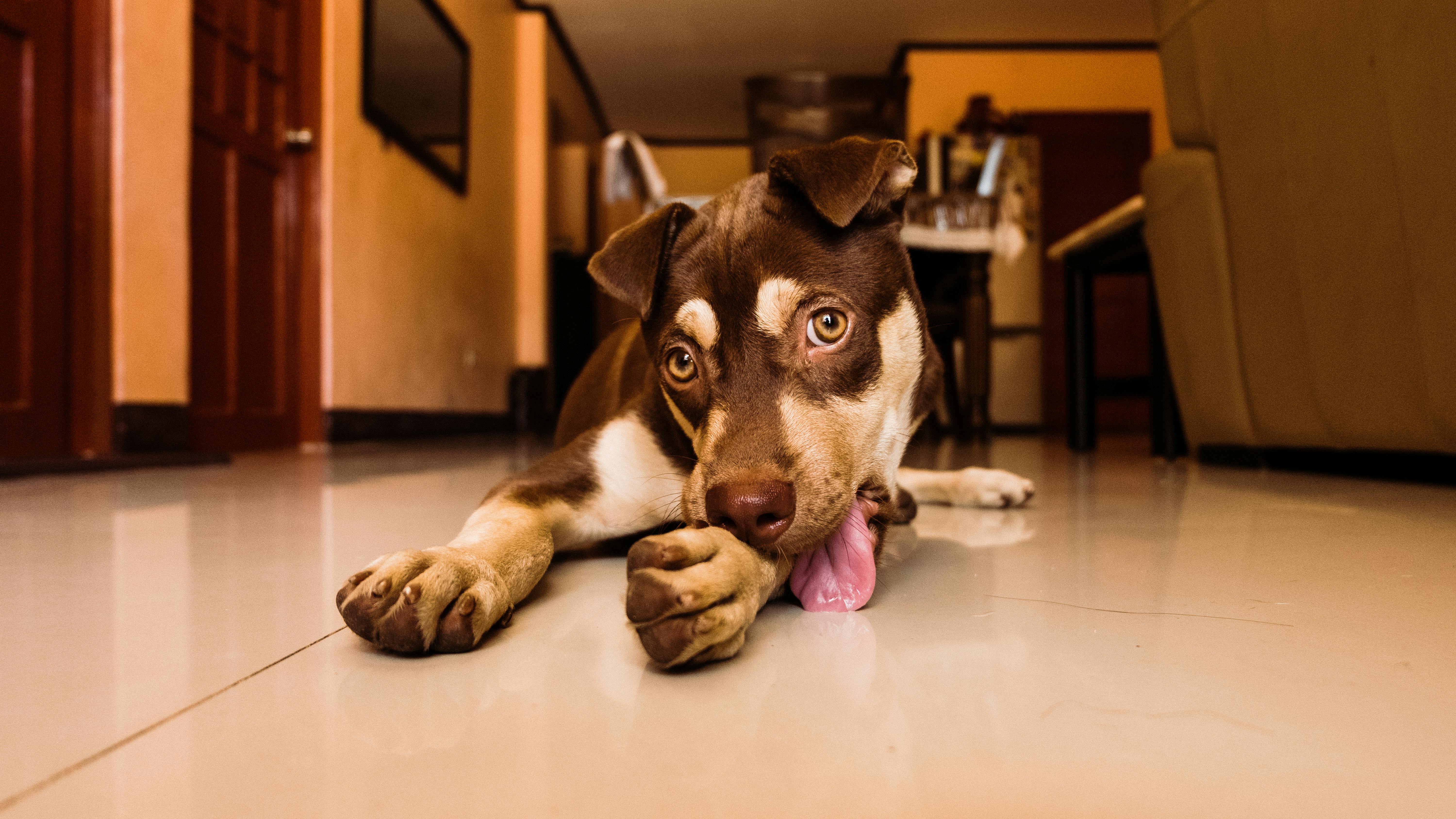
Have you ever watch your dog licking its nose and wonder what’s going on in their little furry head? Dogs are curious creatures, and their behaviors can often leave us scratching our heads. One of the most common yet intriguing habits is their frequent nose licking. But why do dogs have wet noses in the first place? Let’s dive into the fascinating world of our canine companions and uncover the truth behind these behaviors.
Why Do Dogs Lick Their Noses?
Licking their noses seems to be a normal behavior for dogs, but there is more to it than meets the eye. Here are some reasons why they do it:
Taste and Smell Enhancement: Dogs have an incredible sense of smell, and by licking their noses, they can enhance their olfactory receptors. It’s like a fine wine connoisseur swirling a glass to catch more aromas. Wet noses help capture scent particles, making their noses more effective.
Self-Cleaning: Just like how humans wash their hands, dogs lick their noses to keep them clean. They can pick up dirt or debris, and licking helps to eliminate any unwanted stuff. This self-grooming habit is important for their overall health.
Stress or Anxiety: Sometimes, when dogs are anxious or stressed, they might lick their noses as a coping mechanism. This behavior can be a sign that something is bothering them, whether it’s loud noises, being in a new environment, or even meeting strangers.
Communication: Dogs might lick their noses when they are communicating with other dogs or even humans. It can be a sign of submission or an acknowledgment that they are friendly.
Why Do Dogs Have Wet Noses?
Now, let’s tackle the big question: why do dogs have wet noses? It’s not just for show! The moisture on a dog’s nose plays several important roles:
Thermoregulation: Dogs don’t sweat like humans do. Their wet noses help them cool down. The moisture evaporates, and this helps regulate their body temperature. It’s a natural way for them to stay comfortable, especially in hot weather.
Scent Detection: A wet nose helps dogs pick up scents better. The moisture captures scent particles, allowing dogs to detect smells from a greater distance. This is why dogs are used in search and rescue missions, as their noses are like finely tuned instruments.
Health Indicator: A dog’s nose can be a good indicator of their health. Generally, a healthy dog has a cool, wet nose. If a dog’s nose becomes dry or excessively warm, it might be a sign of illness or dehydration.
Fun Facts About Dogs and Their Noses
Unique Patterns: Just like human fingerprints, every dog has a unique nose print. This means you could identify a dog by just looking at their nose!
Nose Size Matters: Breeds with longer noses, like Greyhounds, have more olfactory receptors compared to those with shorter noses, like Bulldogs. This gives the longer-nosed breeds a better sense of smell.
Nasal Heat Sensitivity: Dogs can detect heat through their noses, which helps them find warm-blooded animals, even in the dark.
Licking as a Habit: Some dogs lick their noses more than others, and it can become a habit. If you notice your dog doing this excessively, it might be worth consulting a veterinarian.
Comparing Dog Noses to Human Noses
| Aspect | Dog Nose | Human Nose |
|---|---|---|
| Moisture Level | Typically wet | Generally dry |
| Sense of Smell | Extremely heightened | Less sensitive |
| Function | Thermoregulation, scent detection | Breathing, filtering air |
| Unique Patterns | Yes | No |
Practical Tips for Dog Owners
Hydration: Always keep water available for your dog, especially on hot days, to maintain a healthy wet nose.
Regular Vet Checks: It’s important to monitor your dog’s nose. If it’s persistently dry or cracked, consult with your vet.
Maintain Cleanliness: Regular grooming can help reduce excess licking and keep their nose clean.
Understanding why dogs lick their noses and have wet noses can enhance your relationship with your furry friend. It’s essential to pay attention to these behaviors, as they can provide insight into your dog’s health and well-being. So next time you see your dog licking its nose, you can appreciate the fascinating reasons behind it!
From Wet to Dry: Understanding the Changes in Your Dog’s Nose

Dogs are much more than just pets; they are our companions and family members. One of the most distinctive features of dogs is their noses. But have you ever wondered, why do dogs have wet noses? Understanding the changes from wet to dry can give you insights into your furry friend’s health and emotions. So, let’s dive into the fascinating world of dog noses!
The Science of Wet Noses
Dogs noses are moist for a reason. A wet nose can help a dog to smell better. You see, the moisture on their noses captures scent particles from the air. This is important because dogs have an incredible sense of smell—up to 100,000 times better than humans!
Here’s a quick breakdown of why dog noses are wet:
- Scent Enhancement: Moisture helps to trap scents, amplifying their ability to detect various odors.
- Temperature Regulation: Dogs don’t sweat like humans do; they cool themselves off through their noses.
- Health Indicator: A wet nose can often indicate that a dog is healthy and hydrated.
When Does a Dog’s Nose Change?
It’s not unusual for a dog’s nose to change from wet to dry throughout the day. Factors such as temperature, humidity, and even activity levels can contribute to these changes. For example, after a long run in the park, your dog’s nose may be drier compared to when they are resting in a cool, shady spot.
Some common situations where you might notice a change include:
- Hot Weather: Just like humans, dogs can lose moisture in hot conditions, making their noses feel dry.
- Cold Weather: A chilly breeze can lead to a dry nose as well.
- Illness: If your dog’s nose is consistently dry, it could be a sign of dehydration or illness.
The Importance of Nose Texture
The texture of your dog’s nose can also provide clues to their health. A healthy dog’s nose should be moist and cool to the touch. However, it’s important to note that certain breeds have naturally drier noses.
Here’s a comparison of various nose types:
| Breed | Nose Type | Notes |
|---|---|---|
| Labrador | Wet and Cool | Known for their friendly demeanor and moist noses. |
| Bulldog | Often Dry | Can have dry noses due to their skin folds. |
| Dachshund | Variable | May fluctuate between wet and dry, depending on their activity. |
The Myths Surrounding Dog Noses
There are many myths about dog noses that persist among pet owners. Let’s debunk some of them:
Myth: A dry nose means your dog is sick.
- Fact: While it could be a sign of illness, many dogs have naturally dry noses, and it’s not a definitive indicator of health.
Myth: Dogs only have wet noses when they’re happy.
- Fact: A dog’s nose can be wet for various reasons, including environmental factors or simply being active.
Myth: You can tell a dog’s temperature by their nose.
- Fact: This is not accurate; using a thermometer is the only reliable method to check a dog’s temperature.
Practical Tips for Monitoring Your Dog’s Nose
Keeping an eye on your dog’s nose is essential. Here’s a simple list of things to look out for:
- Check for Consistency: Is it usually wet, or does it often stay dry?
- Look for Cracks or Lesions: These could indicate dehydration or other skin issues.
- Monitor Changes: If there’s a sudden change from wet to dry or vice versa, observe other health indicators.
What Should You Do If Your Dog’s Nose is Dry?
If you notice that your dog’s nose is unusually dry, you might want to take action. Here are some steps you could consider:
- Hydration: Ensure they have enough water available.
- Visit Your Vet: If dryness persists, a veterinarian can help determine if there’s an underlying issue.
- Environmental Adjustments: Maintain a comfortable humidity level in your home, especially during dry seasons.
Understanding your dog’s nose not only helps you in monitoring their health but also strengthens the bond you share. So next time you’re petting your dog, take a moment to appreciate their unique wet nose and what it represents. After all, a dog’s nose is more than just a cute feature; it’s a window into their well-being and emotions!
How Environmental Factors Influence Your Dog’s Nose Moisture Levels

Have you ever wondered why dogs have wet noses? It’s one of those quirky things about our canine companions that many people notice but few truly understand. The moisture on a dog’s nose doesn’t just look cute; it serves important functions. But did you know that environmental factors can play a big role in your dog’s nose moisture levels? Let’s uncover the fascinating truth behind why dogs have wet noses and how things like weather, humidity, and even health affect this feature.
The Science Behind a Dog’s Nose
A dog’s nose is not just for show. It’s an incredibly sophisticated organ that helps them interact with the world. Dogs have around 220 million scent receptors compared to humans who only have about 5 million. This means their sense of smell is way more powerful. The moisture on their noses helps enhance this ability. When a dog’s nose is wet, it can absorb scent particles better, allowing them to detect a wider range of smells.
- Scent Absorption: Wet noses absorb scent particles more effectively.
- Temperature Regulation: Moisture helps cool down dogs, especially during hot weather.
- Health Indicator: Changes in nose moisture can signal health problems.
Environmental Influences on Nose Moisture
Environmental factors can influence the moisture levels on your dog’s nose significantly. Here are some of the key elements to consider:
- Humidity: In humid environments, noses tend to stay wetter. This is because the air is saturated with moisture, which can keep the nasal area moist.
- Temperature: Hot, dry climates can lead to a dry nose. On the contrary, cooler temperatures can help maintain nose moisture levels.
- Seasonal Changes: In winter, heated indoor air can dry out your dog’s nose, while spring can bring allergies that might affect moisture levels.
- Weather Conditions: Rainy days often lead to wetter noses, while sunny days can dry them out.
Why Do Dogs Have Wet Noses?
There are a few reasons why dogs have wet noses, and understanding these can help you take better care of your furry friend:
Enhanced Olfaction: As mentioned earlier, moisture helps capture scent particles. This is crucial for hunting, tracking, and even just sniffing out treats.
Cooling Mechanism: Dogs do not sweat like humans do. They rely on panting and their wet noses to regulate body temperature. A wet nose helps them cool off when they’re overheating.
Health Monitoring: A consistently dry nose may indicate health problems. For example, dehydration, fever, or certain infections can affect nose moisture. It’s important to monitor changes and consult a vet if you notice anything unusual.
Social Interactions: Dogs often greet each other with nose touches. A wet nose can be a sign of a friendly, healthy dog, while a dry nose might signal stress or illness.
Practical Tips for Maintaining Your Dog’s Nose Health
Here are some practical suggestions to help keep your dog’s nose healthy:
- Regular Hydration: Make sure your dog always has access to fresh water to prevent dehydration.
- Humidity Control: If you live in a dry climate, consider using a humidifier indoors to keep the air moist.
- Protect from the Elements: In extreme weather conditions, protect your dog’s nose from drying out. Dog-safe moisturizers can be applied to keep it hydrated.
- Vet Visits: Regular check-ups at the vet can help ensure your dog’s overall health, including the condition of their nose.
Nose Moisture and Health: What to Watch For
Changes in your dog’s nose moisture levels can indicate something is off. Here’s a quick list of signs to keep an eye on:
- Dry and Cracked Nose: This can suggest dehydration or a potential health issue.
- Excessively Wet Nose: If your dog’s nose is constantly dripping, it might indicate an allergy or infection.
- Color Change: A normal nose should be dark and moist; any significant change in color could be a concern.
Fun Facts About Dog Noses
- Dogs have unique nose prints, much like human fingerprints.
- The wetness of a dog’s nose is also influenced by licking it frequently.
- Some breeds are known for having drier noses than others, like the Bulldog.
Understanding why dogs have wet noses and how environmental factors influence this can help pet owners take better care of their furry friends. By monitoring your dog’s nose moisture and being aware of the various factors that can affect it, you can ensure they stay healthy and happy. The bond between a dog and their owner is truly special, and knowing these little details can only strengthen that connection.
Conclusion
In conclusion, the wet noses of dogs serve several vital functions that contribute to their overall health and well-being. The moisture aids in their sense of smell, enhancing their ability to detect and analyze scents, which is essential for their communication and interaction with the world around them. Additionally, a wet nose helps regulate their body temperature through evaporation, acting as a natural cooling mechanism. It’s also a sign of hydration and health, so keeping an eye on your dog’s nose can provide insights into their well-being. As you continue to bond with your furry friend, take a moment to appreciate the unique features that make dogs such remarkable companions. If you notice any significant changes in your dog’s nose or overall health, don’t hesitate to consult your veterinarian. Understanding your pet’s biology not only enriches your relationship but also ensures they lead a happy and healthy life.

